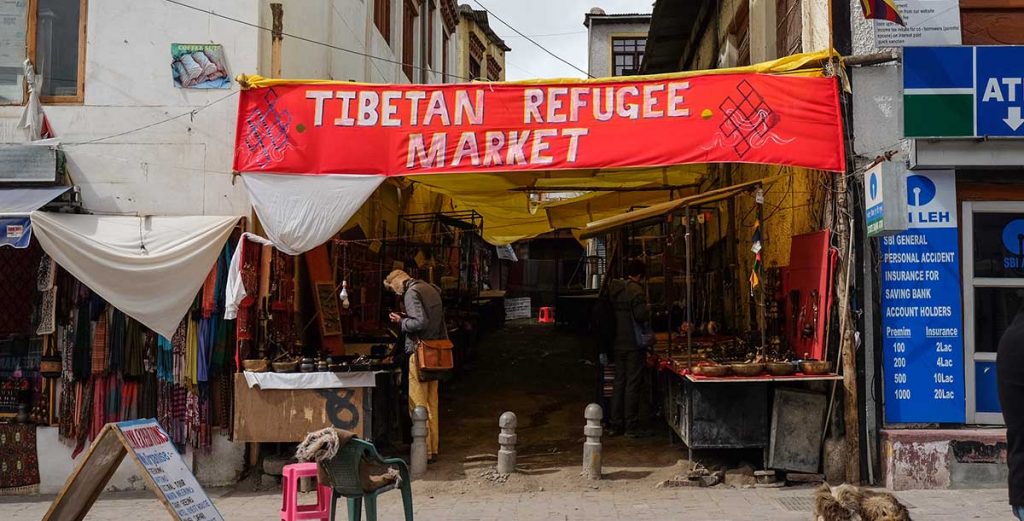The news of the first Tibetan born in India to get the Overseas Citizenship of India (OCI) certificate was met with some obvious elation among the community members, but it also sparked discussions about the reservation that many hold about identifying themselves through Indian documents. Namgyal Samdup was born in Bylakuppe, India, in 1978, and moved to Canada in 1999. The Calgary-based Canadian citizen received his OCI certificate on July 12.
Not an Easy Decision to Make
While Samdup ensured that he got the document after a long-drawn process, not everyone considers it an easy decision to make. The Indian government earlier this year announced that Tibetan refugees born in India during 1950-87 will be able to get Indian passports, after accepting a Delhi High Court ruling from 2016 that had asked for Tibetan refugees to be considered Indian citizens. The Ministry of External Affairs put forth a condition under which those applying for Indian passports will have to surrender their refugee status and leave Tibetan settlements.
In March this year, Lobsang Wangyal, 47, had become the first Tibetan to get the Indian passport. “I feel like a real person now, having obtained a passport,” said Wangyal, who had approached the court to demand his right to an Indian passport, Quint quoted him as saying in an earlier interview. “Tibetans are seen as refugees and as stateless in India. Being seen that way after having been born and living our whole lives in India is unfair and impractical,” he told the website.
The new rules resulted in a rush among Tibetans to apply for Indian passports. Parveen Mohan Sahay, an official at Regional passport office Shimla, said that the number of Tibetans who had applied for Indian passports in Himachal is about to hit 200 now, according to a Times of India report.
Diluting the Cause?
The inclination of Tibetan refugees towards getting Indian documents was, however, discouraged by the Central Tibetan Administration (CTA), the global headquarters of Tibetans living across 40 countries. The CTA issued a letter to Tibetan settlements in India, asking them not to give any supporting documents to those applying for passports, and asking them to advise people not to give up their Tibetan identities, the TOI report added.
Tibetans in India who are against the policy argue that it may dilute the efforts of the community over the last half a century for a free Tibet. The fear was expressed clearly as early as 2015 when the Election Commission issued a directive allowing Tibetan refugees to register for voter identity cards that would help them acquire Indian citizenship.
“Acquiring Indian citizenship will knock the bottom out of their reason for living in exile with a determination to return to their motherland or see her become free at some point in time,” NK Trikha, national convener of Core Group for Tibetan Cause, an organization supporting Tibet’s independence from Chinese rule, was quoted as saying by PTI at the time. “The cost will be too heavy for the overall Tibetan cause,” he had warned.
Tibetan-Indians
However, the issue is not just one concerning the cause of Tibet against China, argues Mila Rangzen, a US armed forces veteran working as an immigration translator in New York, in an article for the Tibet Sun. “One major argument put forward is that once Tibetans in India become Tibetan-Indians, we will lose the legitimacy of fighting for Tibetan freedom,” Rangzen writes.
He, however, points out that the problem lies within the “double standards” practiced by the CTA. “At face value, this seems like a good reason, but underneath the surface it is a pure lie, and double standard too. For example, Tibetan-Americans, Tibetan-Canadians, or Tibetan-English face no such problems. They are actually at the forefront of peaceful street protests.”
About 1,50,000 Tibetans live around the world, out of which 1,20,000 are estimated to be living in India. Tibetans first sought asylum in India when Dalai Lama fled Lhasa in 1959 after a failed uprising against Chinese occupation, and established his government in exile in Dharamsala. Tibetans in India are not refugees or citizens; they are foreigners living in special settlements on humanitarian grounds.
Rangzen highlights that the OCI status, gives Tibetans every right that an Indian citizen has except voting. “And it does not stipulate that you cannot fight for the Tibetan cause, however vague that might be,” he says. “There is no international law set in stone that with foreign passports, you cannot fight for the freedom of your home country. As long as you don’t collude with the enemy of your adopted country, it’s all well.”
